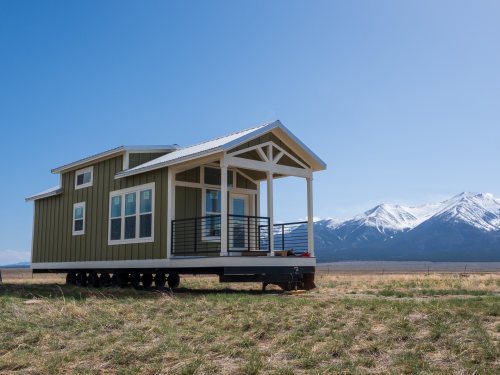*A version of this opinion appeared in the San Francisco Chronicle on September 18, 2005.
Washington—Could the government’s main plan for housing the victims of Hurricane Katrina—the creation of a vast network of rapidly constructed trailer parks in Alabama, Louisiana, and Mississippi—actually delay survivors’ return to normality?
Aren’t there less heavy-handed types of federal housing assistance that might work better, at least for some of the displaced?
Nor surprisingly, given the shakiness of federal response so far, the answer to both questions appears to be “yes” this week as news reports begin to reveal the sheer scale of the Federal Emergency Management Agency’s moves to create dozens of new mobile-home cities of as many as 25,000 units around the Gulf region.
To be sure, Congress’ allocation within days of the disaster of nearly $5 billion for buying up to 300,000 mobile homes, trailers, and recreational vehicles is welcome to the extent it proves that government can still act on a grand scale to provide relief.
And it’s certainly true that thousands of the displaced will need some sort of government-provided shelter, both for the near term and the long—shelter that might as well be provided by double-wides installed by FEMA.
But for all that, one does not have to be a reflexive skeptic about big government to question the wisdom of FEMA’s massive plan. In fact, one only has to contemplate the real needs of the displaced to suspect that, at least for many, a massive federal distribution of emergency housing vouchers, for example, might work far better than mobile home parks to usher needy lives more naturally toward normality.
The problem with FEMA’s trailer camps is that they are a slow-moving, geographically fixed response to the diverse, changeable needs of human beings who are beginning to want above all to reintegrate into mainstream life, wherever they can find it.
Along with a roof over their heads, Katrina’s victims will soon crave more than anything family and community, stable employment, and a shot at salvaging the rest of the school year for the kids.
They are in a hurry to rebuild their lives and already fanning out—many of them—over a dozen states and hundreds of cities to do it.
However, don’t expect huge convoys of double-wides and RVs to immediately roll down the interstates to Gulf region and immediately line up in new cities to provide shelter. It will take time to manufacture, assemble, and install the new units.
Moreover, by their very nature, the coming encampments—whether in state parks or military bases or adjacent to existing mobile home facilities—will cluster the homeless in dedicated new congregations that could well prolong their isolation from family ties, job networks, and good schools. Such clustering, ironically, could well delay some families’ progress into a more settled life by plunging them into make-shift new zones of concentrated destitution.
Which is where vouchers can help. Vouchers, in contrast to physical new housing units, can speed the transition to normality for at least some of the evacuees.
Like direct cash assistance, vouchers can help hundreds of thousands of people quickly—say, within days. That’s possible because the Department of Housing and Urban Development’s basic Section 8 Housing Choice Voucher Program, which serves 2 million American families around country, already exists and can easily be adapted.
At the same time, widely available vouchers good to pay the rent anywhere in the country would allow poor and dispossessed evacuees to move as they see fit to rebuild their lives by dint of individual preferences, kinship networks, and local employment markets.
Has a family been evacuated to Albuquerque, N.M.? Why shouldn’t it receive a federal housing voucher to help it buy stability for a year or two so the kids can enroll in school and the parents get work?
Has a family waiting around near the new camp in Slidell, La., heard about a job in Dallas? Why shouldn’t it go and receive a voucher to help.
So again: Herding homeless victims into designated trailer camps may not respond to the actual dimensions of the exodus or families’ need to move freely toward opportunity. By contrast, providing households vouchers (wherever they may be) for use anywhere in the country would respond to the varied locations, decisions, and preferences of the refugees. Made easily available in dozens of metropolitan areas, vouchers in this way could afford many of Katrina’s victims the autonomy to settle where they see fit: in new places or old, near relatives or opportunities, near a designated camp or not.
In the end, of course, those dispossessed by Katrina likely need both vouchers and trailer parks. The extent and variety of the current crisis—for hundreds of thousands of people—makes that clear.
Still, let’s not over-commit to one rather rigid, old-time response to cataclysm, without providing another option.
Expensive, confining, and provisional, a series of Dust Bowl-like physical encampments could well perpetuate victims’ dislocation and dependency for months or even years. By contrast, a mass distribution of rapid-response emergency housing vouchers would represent—for those that preferred them—a flexible, respectful way to help some victims move immediately back into the mainstream.
Don’t we owe them that option?


Commentary
Op-edIn the Wake of Katrina: Provide Mobility, Not Just Mobile Homes
September 18, 2005